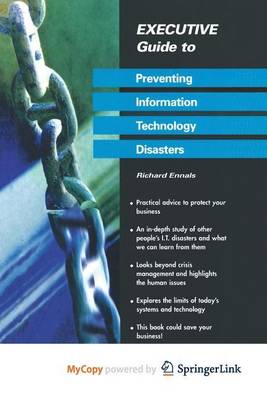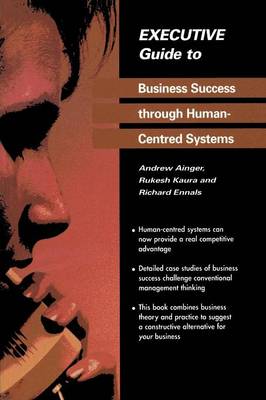Executive Guides
2 total works
Executive Guide to Preventing Information Technology Disasters
by Richard Ennals
Published 15 September 1995
Recent and well-publicised disasters have highlighted the fact that organisations of all kinds - from healthcare to aerospace - are critically dependent on Information Technology systems. The prevention of catastrophic I.T. failure is now an essential part of management.
In this thought-provoking guide for executives and managers Richard Ennals argues that the critical factor is not technology, but people and communication.
In this thought-provoking guide for executives and managers Richard Ennals argues that the critical factor is not technology, but people and communication.
Executive Guide to Business Success through Human-Centred Systems
by Andrew Ainger, Rukesh Kaura, and Richard Ennals
Published 15 September 1995
This book is about people and skilled work. There has been much turmoil in the business environment about how to best manage the balance between people and technology, at a time when pressures for cost reduction are ever greater. Our argument is that people are central to business success, and the appropriate use of technology should support their needs. This is not always easy in practice. We work in a period when change occurs in ever-shortening cycles. Black-and-white solutions may seem attractive, but the long-term consequences are rarely advantageous. A new system is required, build ing on lessons from the past. Human-centred systems build upon core skills of the workforce within a rich, emancipatory environment, utilising the benefits of tech nology. Change can be embraced to achieve competitive advantage and mutual benefit. The three authors are, respectively, engineering director of an inno vative international manufacturing company; analyst for an inter national merchant bank; and university business school professor. The book is intended to offer a new synthesis of theory and practical experience, derived from recent British and European collaborative pro grammes. We are grateful to our colleagues and families for their tolerance during the writing of this book. Even human-centred books impose pressures on busy people. Old Windsor, Brighton and Kingston, June 1995 A.A. R.K.

